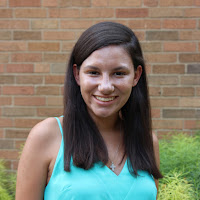 About a week before I moved to Chicago, I realized something. I was incredibly, gut-wrenchingly nervous. Would I be able to do my job? Could I handle simple living? What does it even mean to be in intentional community? At every transition before this, I’d had others who could tell me what to expect. Friends above me at my high school told me to get my skirt shortened before I arrived. Everyone I met offered some advice for getting along with my first roommate in college. No one who I know well has done a year of service before. I didn’t know anyone in Chicago. For the first time, I was really moving into the unknown and had no idea what to expect.
About a week before I moved to Chicago, I realized something. I was incredibly, gut-wrenchingly nervous. Would I be able to do my job? Could I handle simple living? What does it even mean to be in intentional community? At every transition before this, I’d had others who could tell me what to expect. Friends above me at my high school told me to get my skirt shortened before I arrived. Everyone I met offered some advice for getting along with my first roommate in college. No one who I know well has done a year of service before. I didn’t know anyone in Chicago. For the first time, I was really moving into the unknown and had no idea what to expect.Learning to embrace the unexpected and the unknown has truly defined my year so far and has given me so many questions that occupy my mind. In this season of advent, Mary is a beautiful model in accepting the unexpected. When I think about Mary, I am usually caught up in her “yes.” I am so enamored by the way that she was able to fully accept a terrifying new experience with love and grace. This year, however, I am more interested in her questions. Mary’s “yes” is surrounded by uncertainty and confusion. When the Angel Gabriel appeared to her, she is initially troubled. In fact, the very first words she utters in the Bible are a question: “How can this be?” After the birth of her Son, upon hearing others again discuss things that seem extraordinary, “she pondered them in her heart.” This year, I am called to consider the questions that I am asking of God and of those around me in the face of so much I did not expect.
 |
| Maggie shares her reflection at Las Posadas at Our Lady of Tepeyac High School. |
At work, I am challenged by injustice and pain. I have witnessed young people targeted and hurt by a system that that breaks every rule of justice. A few months ago, a young girl told me about the hurt that she was experiencing. It was pain that I had never experienced and I was caught in a spiral of shock. I knew that this kind of suffering existed but I had no idea how to respond. A few weeks later, a young man was surrounded by police officers with drawn guns and held overnight despite being cleared almost immediately. He was on his way to receive an award for all of his hard work.
There are days when some of this just seems like too much. I did not expect this to be such a pervasive reality and I am unprepared to emotionally handle this. Like Mary, I look to God and to those around me and ask “how can this be?” I barely get an answer. But I do witness Mary’s “yes.” I have never been so frustrated - and yet I have never seen God so clearly. Our attorneys from the top tier law schools say “yes” when they accept low paying jobs without health insurance to fight daily against a flawed system. Our case managers say "yes" when they drive twenty minutes out of their way on a weekend to give kids bus cards so they can get to school on Monday. Those I work with say “yes” every day that they glare through tears at computer screens, fighting their own heartbreak in order to make the lives of their young people better. And they say “yes” every time we love each other and offer each other support through our craziest days.
 |
| Jimmy and Maggie pose after Las Posadas! Great job LV! |
And I wouldn’t be able to offer my own “yes” if my community didn’t help me. I had questions at home too. What does it mean to practice unconditional positive regard? What does intentionality mean? Seriously, what the heck is a chia seed and why are these people putting them in cookies? I know that I am so blessed to live with people who pose these questions and help me find answers. I thought I might make some friends, but I didn’t expect to find role models in my own home. But I did. I found people who have shown me such love and generosity that I never could have expected from people who I really just met. I like to be in control, and the word “unexpected” has always been associated with negativity. In our little home on Ridgeway, I learned that the unexpected can carry unimaginable beauty.
I have so much that I ponder in my heart this year. I am learning so much so quickly and can only scrape the surface in this moment. I just hope that, like Mary, when I am asked to embrace the unexpected and the unknown I can take a deep breath and calmly and confidently say “yes.”








